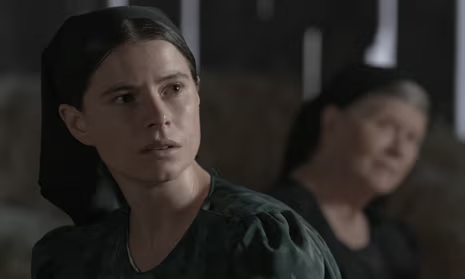
The #MeToo movement has been a catalyst for change, shedding light on the pervasive issue of sexual harassment and assault across industries. Originating in 2006 by activist Tarana Burke and gaining global traction in 2017, the movement has inspired numerous films and documentaries that expose misconduct, give voice to survivors, and push for systemic change. Below, we explore some of the most powerful cinematic works that encapsulate the essence of #MeToo.
She Said (2022)
Based on the groundbreaking investigative work of The New York Times journalists Jodi Kantor and Megan Twohey, She Said chronicles their relentless pursuit of truth in exposing Harvey Weinstein’s decades-long abuse. The film, starring Carey Mulligan and Zoe Kazan, underscores the importance of fearless journalism and the courage of survivors who came forward. She Said not only highlights the power of investigative reporting but also serves as a stark reminder of the culture of silence that allowed Weinstein to operate unchecked for so long.
Tár (2022)
Todd Field’s Tár offers a nuanced take on power dynamics, featuring Cate Blanchett as Lydia Tár, a celebrated conductor who manipulates her influence to exploit young women. Unlike traditional #MeToo narratives that focus on male perpetrators, Tár challenges viewers to examine abuse of power irrespective of gender. The film presents an intricate character study that forces audiences to reflect on systemic corruption within elite institutions.
Surviving R. Kelly (2019)
This harrowing documentary, produced by Dream Hampton, exposes decades of sexual abuse by R&B singer R. Kelly. Featuring firsthand accounts from survivors, Surviving R. Kelly played a critical role in bringing his crimes to public attention, leading to his conviction and a 30-year prison sentence. The series is an essential watch for understanding how predatory behavior can persist when enablers and a culture of silence prevail.
Athlete A (2020)
One of the most chilling sports scandals in history, the case of Larry Nassar—the USA Gymnastics team doctor who sexually abused over 500 young athletes—comes to light in Athlete A. The documentary follows investigative journalists from the Indianapolis Star as they uncover the systemic failures that allowed Nassar’s abuse to continue for decades. Featuring survivor testimonies, Athlete A is a gut-wrenching but necessary exploration of the resilience of young athletes who fought for justice.
On the Record (2020)
Directed by Kirby Dick and Amy Ziering, On the Record centers on Drew Dixon, a former music industry executive, as she courageously speaks out against hip-hop mogul Russell Simmons. The documentary delves into the unique challenges faced by Black women in the #MeToo movement, addressing the intersection of race, gender, and power. Through compelling storytelling, On the Record reveals the emotional and professional toll of coming forward against influential figures.
Nevertheless (2020)
This lesser-known but equally impactful documentary follows seven individuals who have experienced sexual harassment in various workplaces. By weaving together their personal stories, Nevertheless not only exposes the persistent issues of workplace harassment but also offers hope for change through activism and policy reform.
The Impact of #MeToo: A Cinematic Exploration
The #MeToo movement has left an indelible mark on society, shedding light on the pervasive issues of sexual harassment and assault. Through the power of storytelling, cinema and documentaries have played a critical role in amplifying the voices of survivors, exposing systemic injustices, and initiating crucial conversations about consent, power, and accountability. Films like She Said and Tár, as well as documentaries such as Surviving R. Kelly and Athlete A, offer compelling narratives that both educate and inspire change.
Conclusion
The films and documentaries surrounding the #MeToo movement serve as powerful tools for raising awareness and driving societal transformation. By bringing these stories to light, they encourage dialogue, promote understanding, and push for meaningful reforms across industries. As audiences, it is our responsibility to engage with these narratives, support survivors, and contribute to a culture of respect and accountability. The conversation sparked by #MeToo is far from over, and continued advocacy through media and activism is essential in fostering a safer and more equitable world for all.